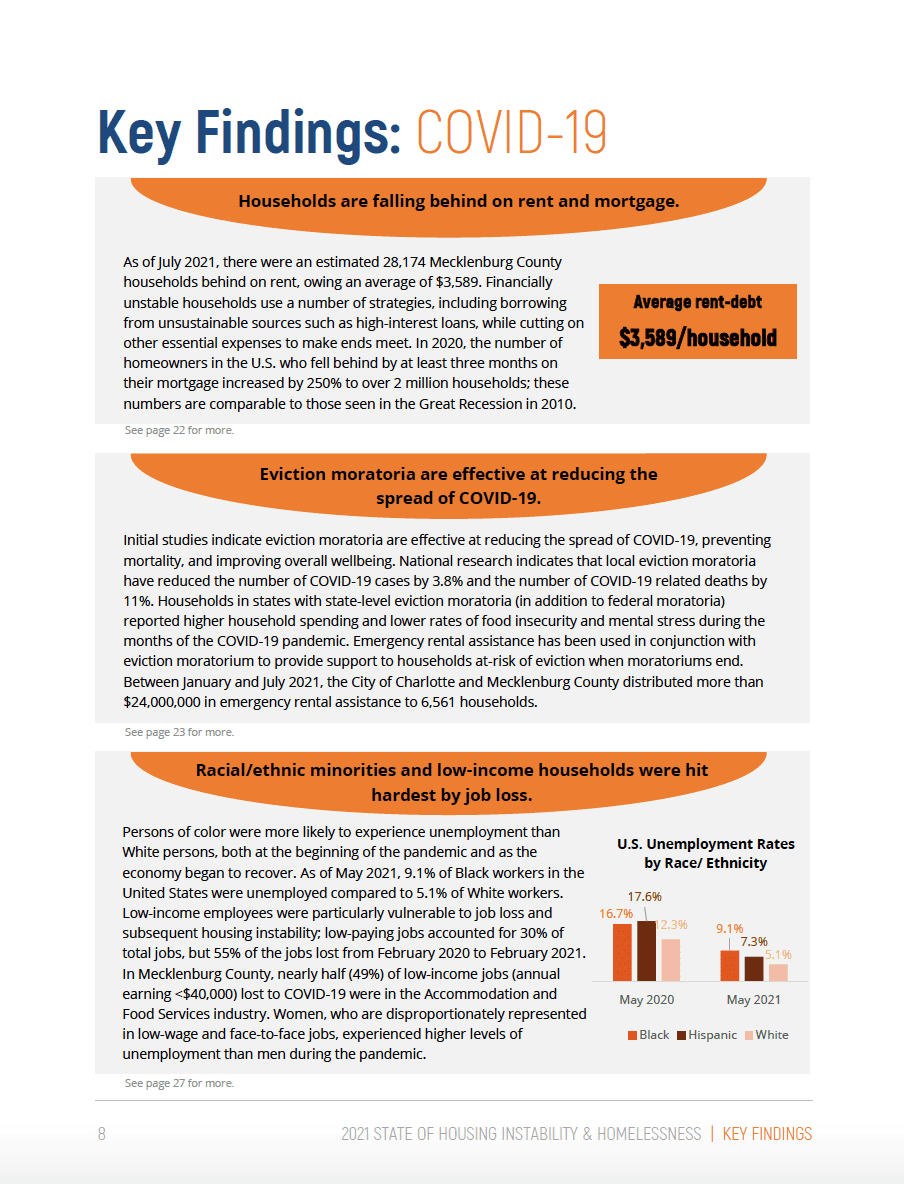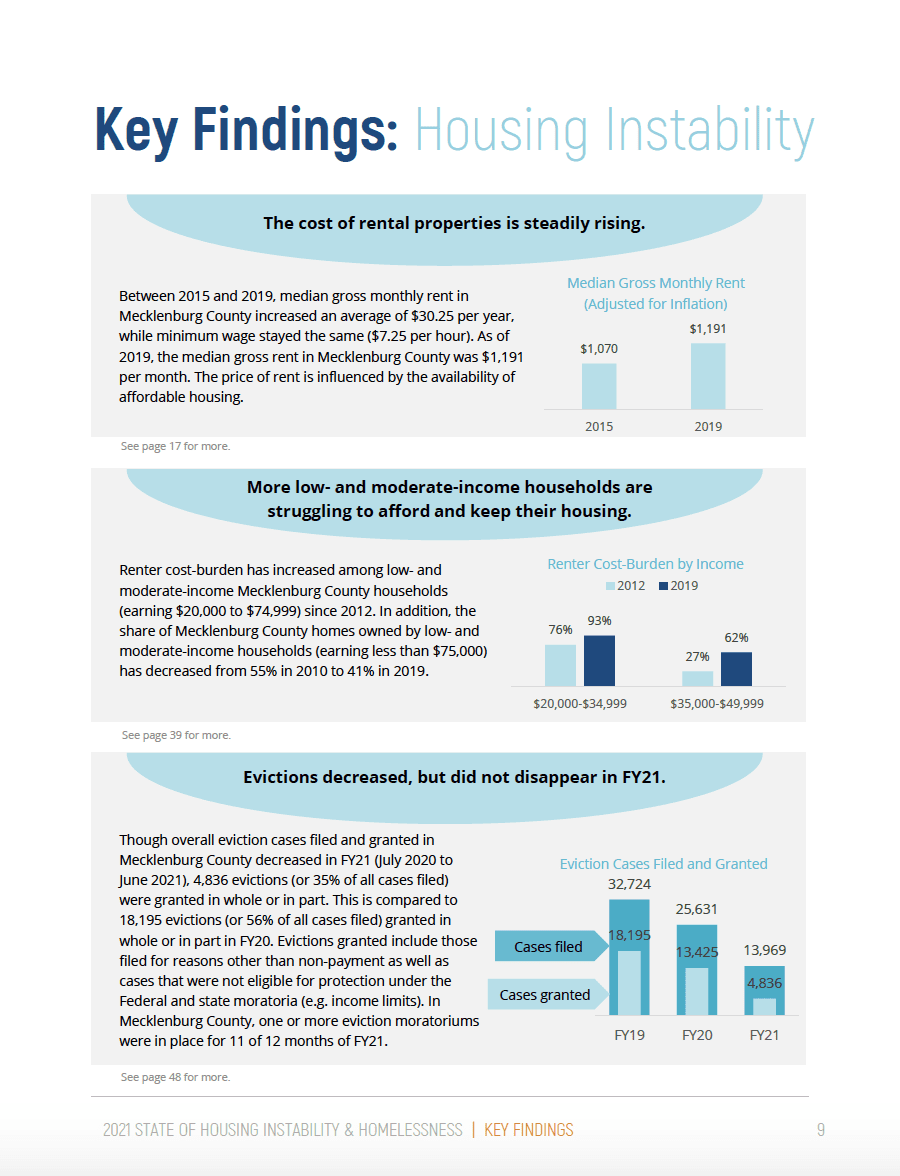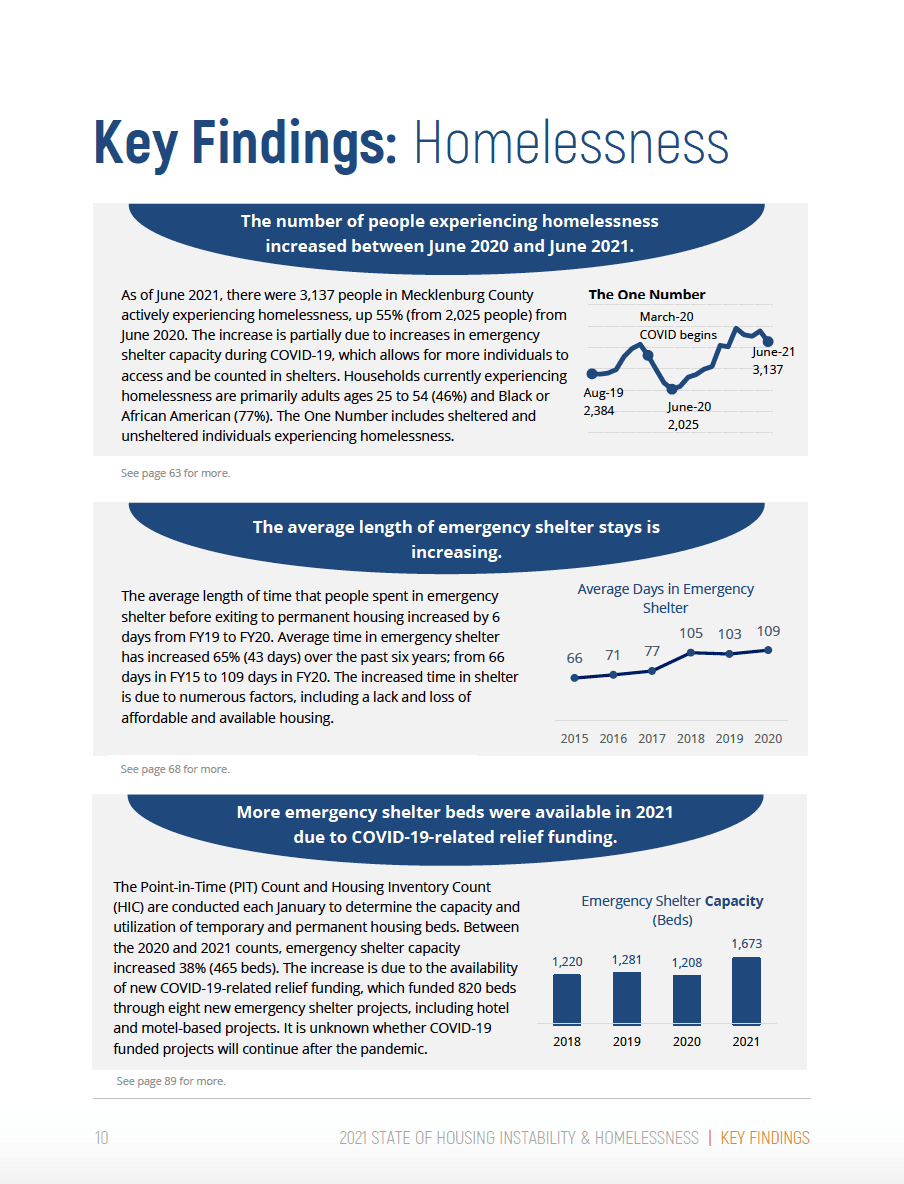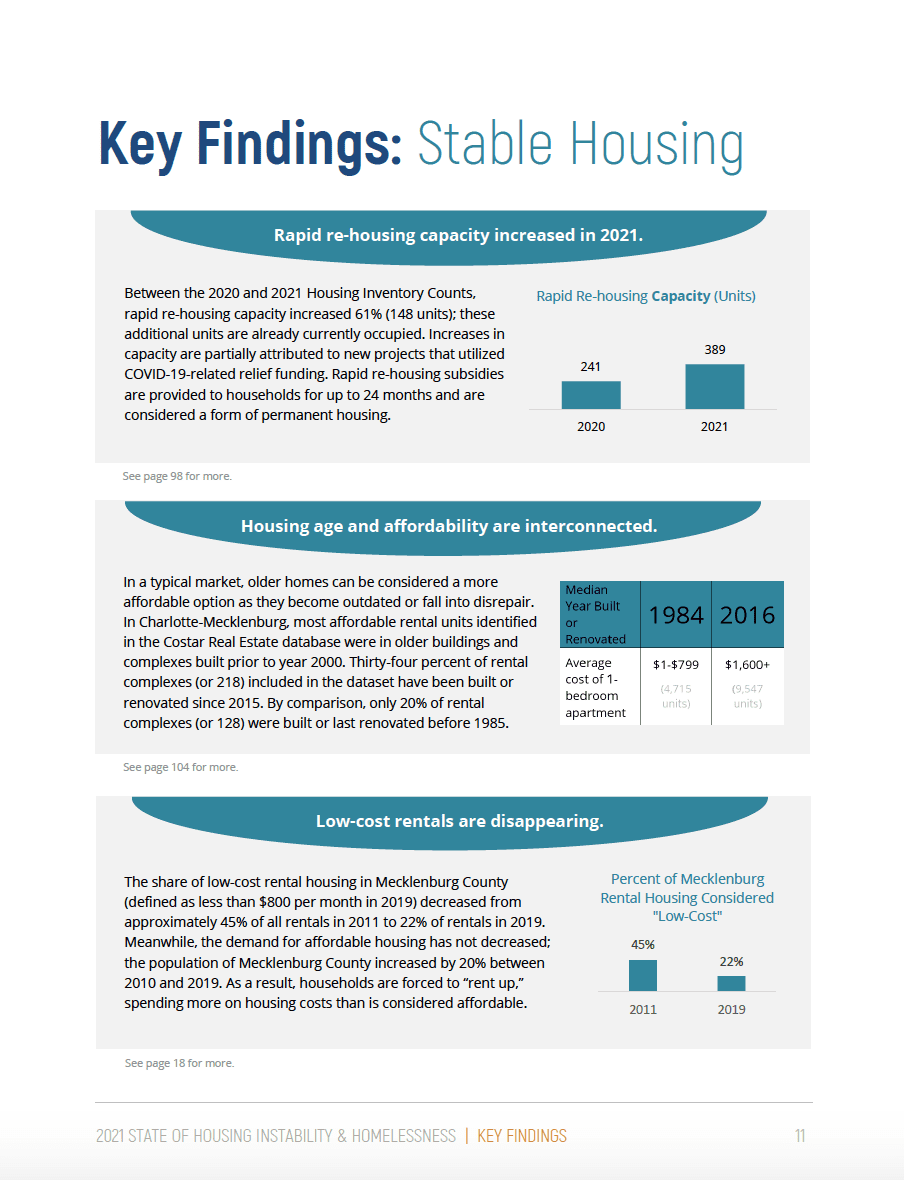2021 State of Housing Instability & Homelessness Report Released Today

Mecklenburg County Community Support Services releases today the 2021 State of Housing Instability & Homelessness (SoHIH) Report. The SoHIH report is part of the annual Housing Instability & Homelessness Report series which is funded by Mecklenburg County Community Support Services and produced by the UNC Charlotte Urban Institute.
The 2021 SoHIH provides a single, dedicated compilation of all the latest data on housing instability and homelessness pertaining to Charlotte-Mecklenburg. This resource can be used by any and all stakeholders working to address housing instability and homelessness. The annual report combines local, regional, and national data on the full housing continuum (from housing instability to homelessness), and stable (permanent, affordable) housing. The report features data from the 2021 Point-in-Time Count; housing inventory and rental gaps; Housing Trust Fund; and system performance metrics.
This blog post outlines the key findings from the 2021 SoHIH and what it could mean for Charlotte-Mecklenburg.
KEY FINDINGS
Each year, the SoHIH incorporates new data and/or resources to help describe, contextualize, and quantify components along the entire housing continuum. In addition to new or updated data related to the continuum, the 2021 SoHIH report includes data underscoring the link between housing age and affordability; new information on the systemic & structural causes of housing instability and homelessness; and the impact of COVID-19 on both the capacity of and demand for housing related services in Charlotte-Mecklenburg.
Some of the key findings from the 2021 SoHIH report include:
- The COVID-19 pandemic has exacerbated the pre-existing problems of homelessness and housing instability, disproportionately impacting minority and low-income households. As of July 2021, there were an estimated 28,174 Mecklenburg County households behind on rent, owing an average of $3,589.
- The COVID-19 pandemic has exposed housing problems that were hidden prior to the pandemic, as well as resulted in the allocation of millions of dollars to support households facing both housing instability and homelessness in Charlotte-Mecklenburg.
- The inventory of permanent, affordable housing in Charlotte-Mecklenburg continues to decrease, while the need for permanent, affordable housing only increases. There is a 23,022-unit gap of rental units for extremely low-income households who are at or below 30% of Area Median Income in Charlotte-Mecklenburg. This shortage contributes to the growing number of households experiencing housing instability and homelessness; it also means that households are spending longer periods of time in shelter.
For more information
The SoHIH report is intended to be the “go-to” community resource for information on housing instability and homelessness in Charlotte-Mecklenburg. Last week’s blog post provided an overview of the main report sections, and what is contained in each one. The report is anchored by three main sections, corresponding to the three components of the housing continuum: housing instability; homelessness; and stable (i.e. permanent and affordable) housing. The report is formatted in this way so that data and resources related to any phase in the continuum can be easily found.
- In addition, the three key findings for each of the report sections are available as separate, downloadable PDFs (available at the bottom of this story).
- There is also a fact sheet that distills the essential housing instability and homelessness indicators (with key definitions) into a single page (front and back) document. Find the fact sheet online here.
So, what?
As in previous iterations, the single, biggest takeaway from the 2021 SoHIH report is the continued need for more permanent, affordable housing. The 2021 SoHIH report also offers an in-depth look at the extent to which COVID-19 has exacerbated the pre-existing conditions of housing instability and homelessness, as well as the federal resources deployed to mitigate its impact. Prior to COVID-19, data indicated that more households were already facing housing instability and homelessness in Charlotte-Mecklenburg; and access to and availability of affordable, permanent housing was decreasing. The pandemic has highlighted pre-existing gaps while also exposing areas of concern which were previously obscured. Finally, the report indicates that, based upon current trends and without widespread investment, it is possible that the long-term impacts of the pandemic will result in even greater numbers of people experiencing housing instability and homelessness in the community.
Therefore, it is critical that all stakeholders use the information contained in the report to ask for for more permanent, affordable housing in Charlotte-Mecklenburg, especially for those households who have the lowest incomes. To share the key findings and indicate ways to employ the report, Mecklenburg County Community Support Services has also released a community toolkit, which can be downloaded via this link [insert link].
The 2021 SoHIH report and all complementary material can be found on the Charlotte-Mecklenburg Housing & Homelessness Dashboard.
Courtney LaCaria



